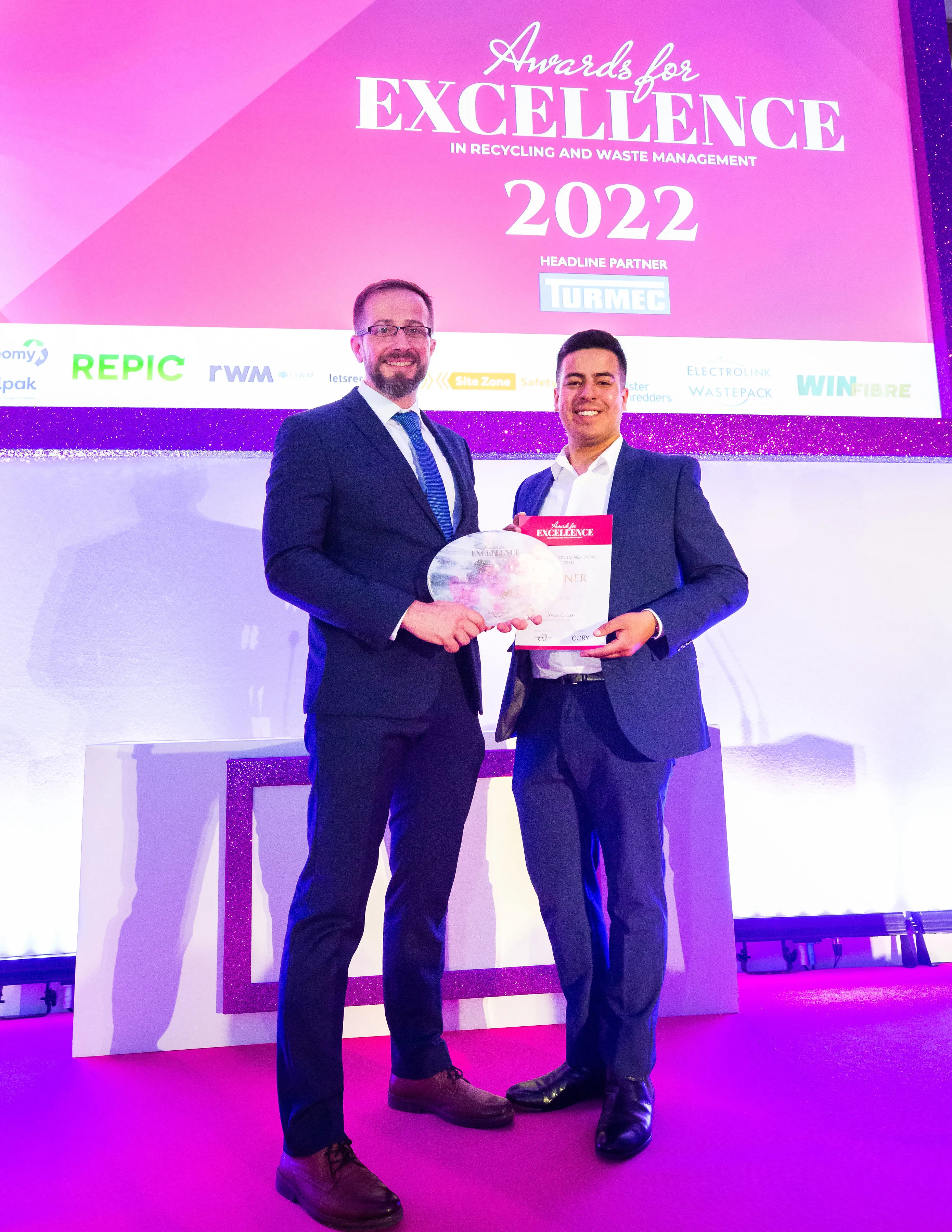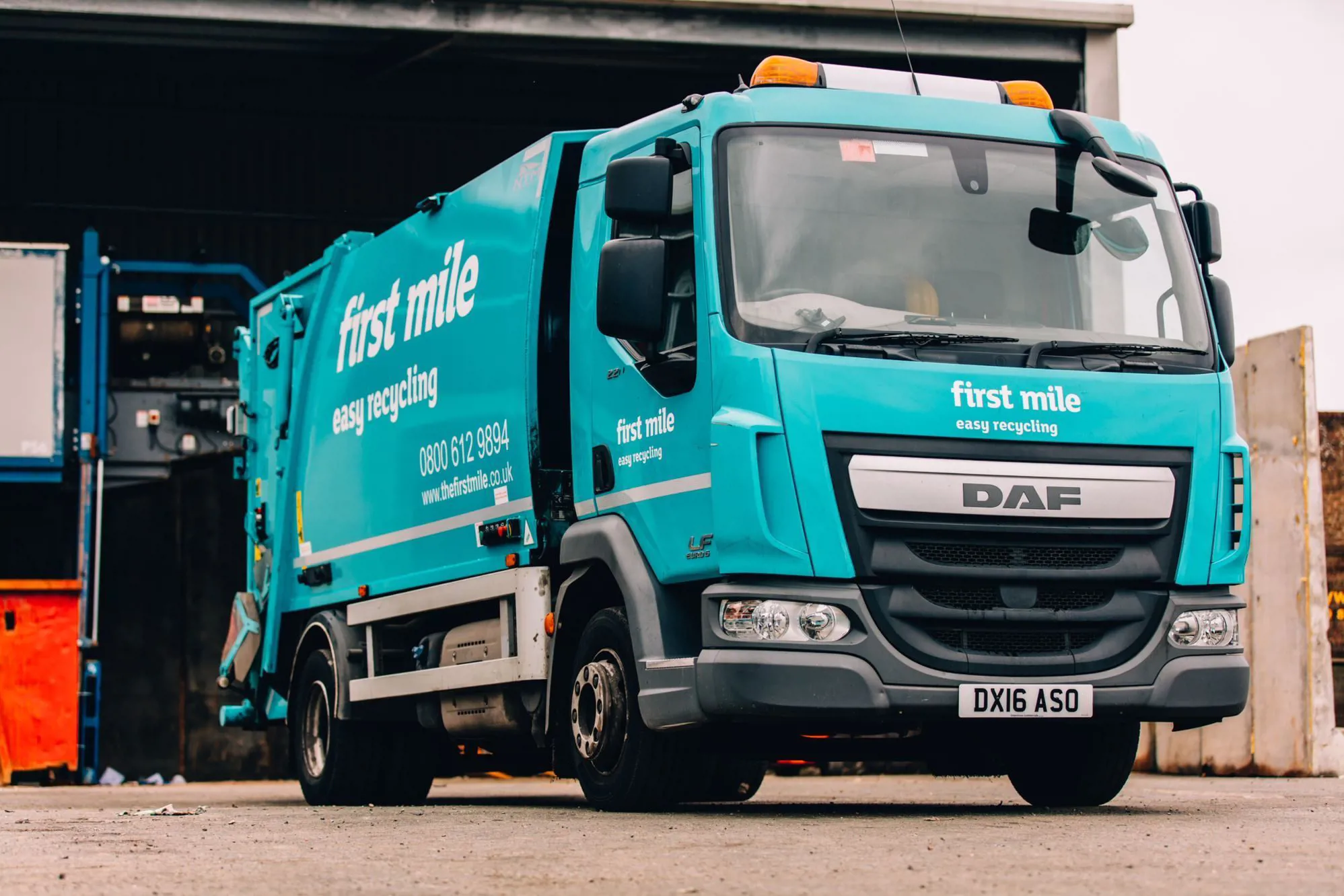
First Mile leads the way in reducing carbon emissions by making it easier for businesses to recycle. So we’re thrilled to be the winners of the new ‘Contribution to Achieving Net Zero’ award!
The award was presented at the Awards for Excellence in Recycling and Waste Management, the most prestigious event in the recycling and resource management sector. Finalists for the 16 award categories included businesses, individuals, local authorities and community groups.
This year’s ceremony, attended by over 400 people, was held at the Landmark Hotel, London, on 18th May, and was hosted by the environmental journalist Lucy Siegle.
What’s the ‘Contribution to Achieving Net Zero Award’ all about?
Countries need to reach net-zero by 2050 — and how they achieve that aim is going to have a major impact on our future world. This timely award was set up to find businesses or organisations that have clear and circular economy goals in their work — for instance, by developing new strategies to support carbon neutrality or carbon reduction. Award judges were on the look-out for entrants that take the lead in developing, implementing or enhancing net zero initiatives.
You can find out more about our innovative net-zero initiatives in our 2022 Carbon Report.
Why is ‘net zero’ important?
In brief, the term ‘net zero’ means achieving a balance between the number of harmful greenhouse gases pumped into the atmosphere and the amount taken out.
We’ll only achieve net zero when the emissions we add to the atmosphere are no more than those removed.
It’s important because greenhouse gas emissions are causing devastating climate change. They are the direct result of things like burning fossil fuels and deforestation.

What is First Mile doing to achieve net-zero?
The carbon savings First Mile makes by recycling stuff outweighs the emissions of our operation (such as driving delivery trucks). This means we’re already achieving net-zero carbon. But that’s not enough for us, so we’ve set out to do even more.
In 2021, we succeeded in reducing our carbon emissions further by:
- reducing the carbon impact of our fleet and operation
- reducing the carbon impact of our customer's waste
- offsetting unavoidable emissions through tangible direct air-capture carbon projects
- supporting and investing in new technologies to find lower-carbon ways of working in the future. For example, we invested £250k into improving route optimisation to make our fleet more efficient.
By taking measures such as using zero-emission cargo bikes in built-up areas, using telematics to reduce inefficient driving and unnecessary idling and switching to fully renewable energy across all locations, we’ve successfully reduced our emissions per tonne of recycling collected.



